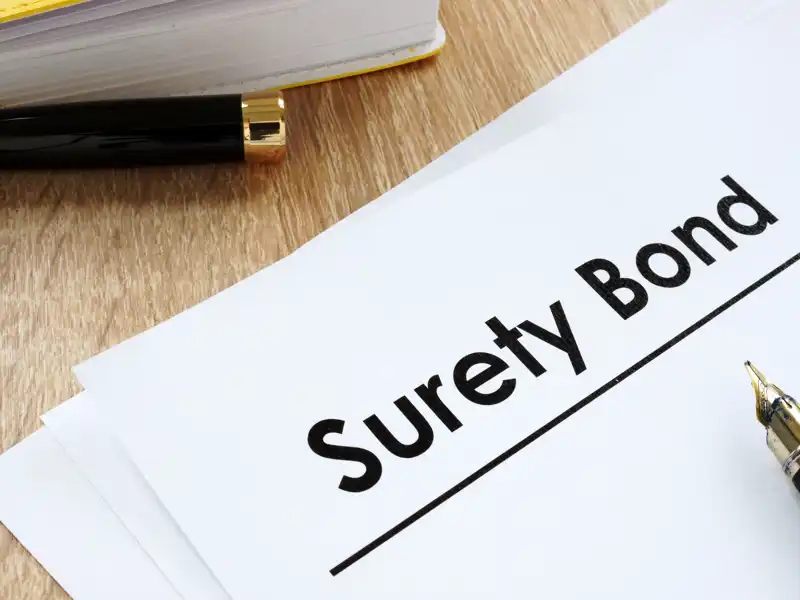Appeal Bond

An appeal bond is a type of court bond that a party must post when appealing a court decision to a higher court. It serves as a guarantee that the appellant will not use the appeal simply to postpone payment or enforcement.
Key Highlights
- An appeal bond's primary purpose is to ensure that the appellant (the party filing the appeal) will fulfill the original judgment if the appeal is unsuccessful.
- This bond protects the appellee (the party who won the original case) from financial loss due to delays caused by the appeal process.
- Premiums typically range from 1 to 2% of the entire bond amount.
How do I purchase an appeal bond?
NFP, the nation's largest and most reliable surety company, is authorized to issue appeal bonds in each of the 50 states. We can provide the best rates for your bond, as well as the fastest issuance, to get your business off and running.
Our short online application makes it easy. Click below to start the application process today.
Appeal Bond FAQs
Appeal bonds are a type of surety that a defendant appealing a lower court decision presents to the courts to delay payment of a judgment until after the appeal has been heard by a higher court.
Since the chances of winning the appeal are often low, the supersedeas bond also ensures that the defendant is not merely delaying payment of a judgment or filing a frivolous appeal. The bond cost and risk of losing assets is significant enough to keep defendants who are not confident in their position from continuing to pursue a different outcome in the courts.
A plaintiff must wait 10 days before executing a judgment against a plaintiff. During this time, if the defendant obtains a supersedeas bond, the plaintiff cannot execute judgment, even after the 10 days. The judgment can then only be executed upon completion of the appeals process if a defendant loses in the appellate court.
After losing a case in civil court, a defendant has the right to appeal the case to a higher court. In most cases, the litigant must either pay a cash amount to the court or present a supersedeas bond. The litigant would then call a surety company or surety agent to begin the process. The involved surety will ask for certain paperwork, such as a bond form acceptable by the court, proof of collateral, and the premium payment for the bond.
Because collateral is posted, if a defendant loses the appeal, the plaintiff can seize their collateral if the litigant cannot or will not pay. Appeals can take years, and defendants are often bankrupt by the end of the appeals process. The supersedeas bond, with its associated collateral, ensures the plaintiff can still be made whole. The decision rendered by the lower court and appellate courts can be executed, and the plaintiff can be assured receipt of what is due, even if the defendant is insolvent.
These types of sureties are normally much larger than the judgment amount to cover future possible expenses, such as court costs, interest, and attorney's fees. Though rates vary by state, all require only a portion of the full surety amount to secure them. Premiums typically range from 1 to 2% of the entire bond amount.
Many states have implemented a cap on the amount the defendant is required to pay. For instance, in Florida, the appellant can be required to pay no more than $50 million or post no more than that amount in an appeal bond upon appealing the lower court's decision.
In addition to the premium, defendants are also required to present collateral in the full bond amount. This collateral could be investments, real estate or other assets that ensure the complainant can be made whole should the defendant go bankrupt upon losing the appeal.
If you win your appeal, your bond premium is non-refundable. Without the bond, though, you would be responsible for recovering any monies you paid out in a judgment that has now been reversed.
If you lose your appeal, either you or the surety will pay the courts the full bond amount, including the amount of any judgment. If you are unable to pay, the collateral you presented upon purchasing the bond will be seized and signed over to the complainant. In cases where the surety pays the full bond amount and you must repay the surety, failure to pay the surety will result in the surety taking the assets and could result in further judgment.
Why Get Bonded Through NFP?
Fast and Easy
All Types. All States.
Surety Bond Experts
Strong Relationships
Pricing Flexibility
Explore All Surety Bonds
Browse all of our surety bonds below or connect with the expertise and guidance of one of our surety bond specialists.
Featured Bonds
Additional Commercial Surety Bonds
Featured Bonds
Additional Construction Surety Bonds
Featured Bonds
Additional License and Permit Surety Bonds
Explore All Surety Bonds
Browse all of our surety bonds below or connect with the expertise and guidance of one of our surety bond specialists.







